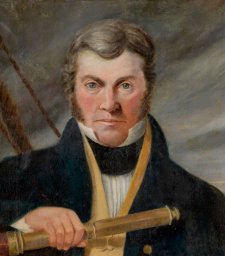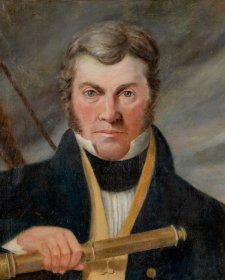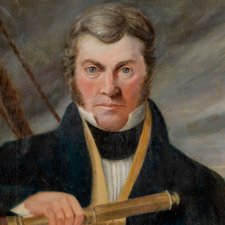William Kinghorne (1796-1878) came to the colonies from Scotland some time before 1824. By the time his father, Alexander, came here that year with three daughters and two younger sons, William's older brother, James, was a surveyor with Governor Brisbane in New South Wales, and William was in command of the brig Cypruss, a government vessel which traded between Sydney and Hobart Town. Alexander Kinghorne presided over the prison farm at Emu Plains, and by 1828, when he was living at Liverpool, he had become a magistrate. His son Kenneth took on the running of their property, Cardross, in the Wollondilly district near Goulburn, and his son Alexander Jnr established a series of flour mills. The family also acquired land at Boorowa; Bathurst; an island off Tasmania; and the north-eastern side of Jervis Bay. Here, on a property they named Mount Jervis, the Kinghornes flourished, while William operated a whaling station nearby that made full use of the plentiful resources available in the bay. The station was still operating in 1841. The family was severely affected by the drought of the 1840s; Alexander went home to Scotland, where he died. Other members of the family persisted on the land, including Alexander's daughter Elizabeth Chisholm, who had taken up 2000 acres of land adjoining Cardross, naming the property Kippilaw. Captain Kinghorne, who lived into his eighties, is buried in the cemetery of St James's Anglican Church, Kippilaw. Kinghorne Street, one of the main streets of Nowra, is named after the family, as are Kinghorn [sic] Point between Culburra and Currarong and Kinghorne Street in North Goulburn.







